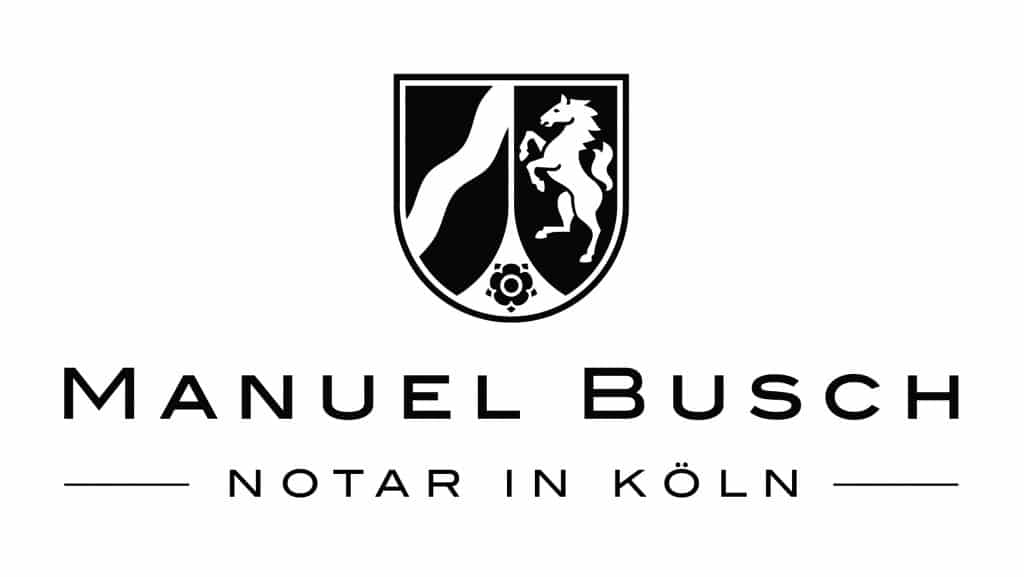
Inheritance / Gift
The Basic Law guarantees the freedom to make a will: Through a will or inheritance contract, everyone can determine who will receive their assets in the event of their death. The testator is not bound by the legal order of succession. For example, they can designate individuals with whom they are not related as heirs, modify the legal shares of inheritance, and arrange legacies or the execution of the will. These arrangements can be made through a will or an inheritance contract.
All documents relevant to succession will be registered in the testamentary records of the registry offices until the end of 2011 and from 2012 in the Central Testament Register of the Federal Chamber of Notaries (ZTR). This ensures that in the event of death, the document will be considered in the probate proceedings. This provides procedural assurance that the last will documented in a notarial deed will be implemented.
Forms of testamentary dispositions
Testament. The will can be created as an individual will or, in the case of spouses or registered life partners, as a joint will. Although a will can also be handwritten in its entirety, it is highly recommended to seek notarial advice and preparation as well as its notarization: Handwritten wills often contain ambiguities or errors that can later lead to disputes. Other precautionary instruments, such as powers of attorney, compulsory portion claims, and many other aspects must also be considered when drafting a testamentary disposition. These few examples illustrate the legal complexity of the subject.
Contract of inheritance. The inheritance contract is a testamentary disposition created in contractual form, involving at least two contractual partners. It requires notarization. Unlike with a joint will, persons who are not married to each other can also enter into an inheritance contract. Compared to notarized joint wills, the inheritance contract is more cost-effective as it does not have to be placed into the special official custody of the probate court.
The provisions set forth in an inheritance contract can generally only be changed with the consent of both contractual partners, and not at all after the death of one of the parties. This binding nature is often a useful means of managing the estate according to the wishes of the first to pass away. However, an inheritance contract can also allow for extensive unilateral changes to the provisions, if a binding effect is not desired. Therefore, the inheritance contract is an extremely flexible and individualized tool, allowing the order of succession to be optimally tailored to the testators' wishes.
Design tools
In addition to naming heirs, there are a variety of design tools at your disposal. In our advisory and design practice, we notaries combine these tools in such a way as to give your final wishes optimal and legally secure expression.
Legacy. If you wish for certain individuals not to become heirs, but rather to receive specific items from the estate, you can arrange for a legacy concerning those items. The bequeathed item does not immediately transfer ownership to the beneficiary upon your death. Instead, the heir is obligated to hand over the item to the beneficiary.
Execution of Wills. You can appoint an executor by way of a testamentary disposition. Unless otherwise specified, the executor's tasks include taking possession of the estate, executing your last will and testament, and if there is a community of heirs, potentially managing the division among the heirs. Appointing an executor is advisable for larger estates or when it is expected that the heirs may be overwhelmed with managing the estate due to minority age, lack of experience, or medical reasons.
Appointment of a Guardian. Parents can designate a guardian for their child in the event of their death. This is also done by way of a testamentary disposition.
Gifting and anticipated inheritance
Often there is a need to transfer assets to the next generation while still alive. In addition to the area of business succession, the transfer of real estate to spouses or children is of great importance. When the transfer is made as a gift with consideration of future inheritance, it is referred to as anticipated inheritance.
Legally complex transfers of real estate, inheritable and business shares, as well as future gifts, require notarization. We notaries are your knowledgeable helpers in this regard. However, the sometimes significant tax-saving opportunities should not distract from the fact that a transfer only makes sense if both the transferor and transferee are "ready" for the asset transfer and trust each other as much as possible.
When deciding whether to make a gift through a lifetime transfer or through a testamentary disposition, the respective advantages and disadvantages must be carefully weighed. One argument against a lifetime transfer is that the transferred asset is no longer available to the transferor. According to the law, the right to reclaim is limited but can be agreed upon under certain conditions in the transfer contract. On the other hand, a lifetime transfer offers considerable advantages. Examples include:
The motives that ultimately lead to a real estate transfer are as varied as the resulting contractual design options. Depending on the motivation, the contract may include, for example, severance payments to the transferor, the granting of residential rights, care obligations, and so on. The possibilities are virtually limitless. Of course, the tax implications must also be reviewed on a case-by-case basis.
We will work with you to create a contract that fits your needs and discuss the implications in detail.
online forms
Regardless of whether you currently only want notarial advice or are aiming for a notarization: We offer you the opportunity to enter all the necessary information directly into a tailor-made online form and then send it securely to us in encrypted form. In this way we can suggest a suitable appointment to you efficiently and quickly.
Your contact in Cologne
Notary Manuel Busch
I am happy to be at your disposal together with my competent team to offer you comprehensive notarial advice in the area of inheritance law / donations. With our expertise, we want to ensure that all matters are handled according to your ideas and are legally secured. Should you have any questions or require assistance, please do not hesitate to contact us. We are always there for you and will be happy to assist you.
